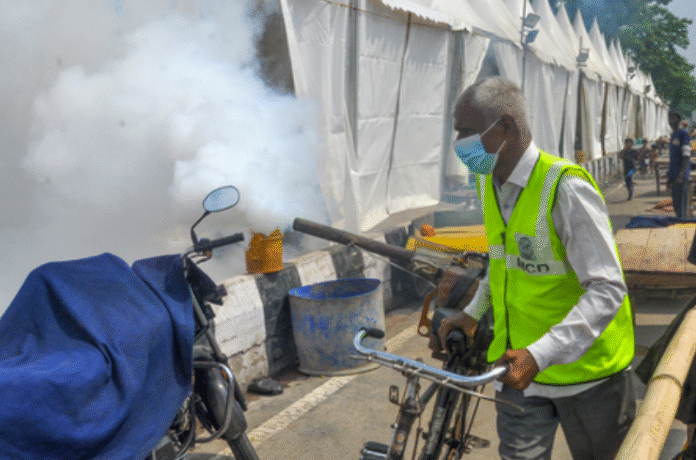NEW DELHI– Rising global temperatures are projected to sharply increase the spread of dengue fever, with cases potentially surging by up to 76 percent across Asia and the Americas by mid-century, according to new research published in the Proceedings of the National Academy of Sciences.
The study, conducted by scientists from the University of Washington, Stanford University, and the U.S. National Bureau of Economic Research, provides some of the strongest evidence yet that climate warming is already intensifying dengue transmission.
“The effects of temperature were much larger than I expected,” said lead author Marissa Childs, an assistant professor of environmental health at the University of Washington. “Even small shifts in temperature can have a big impact on dengue transmission, and we’re already seeing the fingerprint of climate warming.”
Researchers analyzed more than 1.4 million observations of dengue cases across 21 countries in Central and South America, Southeast Asia, and South Asia. They found that warmer temperatures are pushing the disease into new regions while increasing burdens in areas where dengue is already endemic.
The virus spreads most efficiently in a “Goldilocks zone” around 27.8 degrees Celsius (82 degrees Fahrenheit). Transmission rises significantly as cooler areas warm toward that range, while extremely hot regions may see slight declines if temperatures move beyond the optimal threshold.
As a result, some of the steepest increases are projected for densely populated regions of Mexico, Peru, and Brazil that historically had cooler climates. Overall, climate change accounted for an estimated 18 percent of dengue cases between 1995 and 2014 across the 21 countries studied — equivalent to roughly 4.6 million additional infections each year.
Looking ahead, the researchers projected dengue cases could climb by between 49 and 76 percent by 2050, depending on global greenhouse gas emissions. At the upper end of the forecast, incidence could more than double in cooler regions that already house more than 260 million people.
The authors stressed that aggressive climate mitigation could significantly curb the projected rise, but adaptation will also be critical. Expanded mosquito control, stronger health systems, and the broader rollout of newly developed dengue vaccines will be essential to reducing the disease burden.
The findings underscore how climate change is reshaping the global health landscape, pushing tropical diseases into new territories and placing millions more people at risk. (Source: IANS)














